AWS Solutions Architect Associate Certification
Bringing it all together
Tools for Well Architected Framework
Welcome back, AWS Cloud Practitioner (CLF-C02)! In this article, we explore several essential tools designed to help you understand, implement, and apply the AWS Well-Architected Framework. Whether you are preparing for certification or working as an architect or solutions architect, these constantly updated resources will enhance your AWS architectural strategy.
Below are three key resources to consider:
- The AWS Well-Architected Framework, which was recently updated to cover all six pillars, including the additional Operational Excellence and Sustainability pillars that are not part of the Solutions Architect Associate Certification.
- The Well-Architected Tool available within the AWS Console that evaluates your workloads and provides best practice recommendations.
- A collection of specialized whitepapers — AWS Lenses and AWS Guidance — that offer in-depth insights and specific recommendations across various use cases.
The AWS Well-Architected Framework
The Well-Architected Framework comprises six pillars:
- Operational Excellence
- Security
- Reliability
- Performance Efficiency
- Cost Optimization
- Sustainability
While Security, Reliability, Performance Efficiency, and Cost Optimization are core components, Operational Excellence is specifically beneficial for DevOps engineers, and the Sustainability pillar, although critical, is less frequently emphasized.
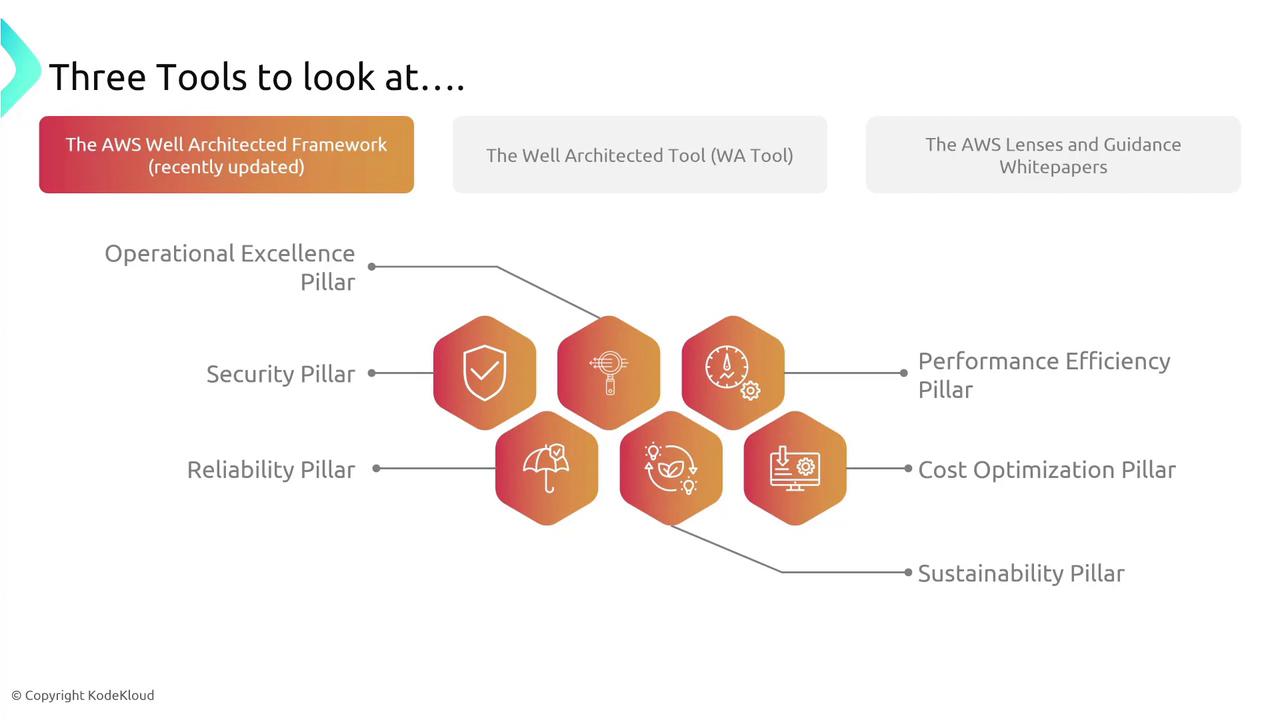
Quick Tip
Although memorizing every detail of the whitepapers is not necessary for certification, a solid understanding of these pillars and tools is highly recommended for real-world AWS architectural optimization.
The AWS Well-Architected Tool
Access the Well-Architected Tool through your AWS Console to evaluate your workloads effectively. By answering a series of targeted questions—such as details regarding a stock portfolio’s industry type, sub-industry, and regions—the tool assesses various aspects of your workloads including security, reliability, and cost-efficiency.
The tool provides a clear overview with status indicators for answered and unanswered questions, risk assessments (categorized as high or medium risk), and recommendations for improvements. Additionally, you can generate comprehensive reports for your workloads.
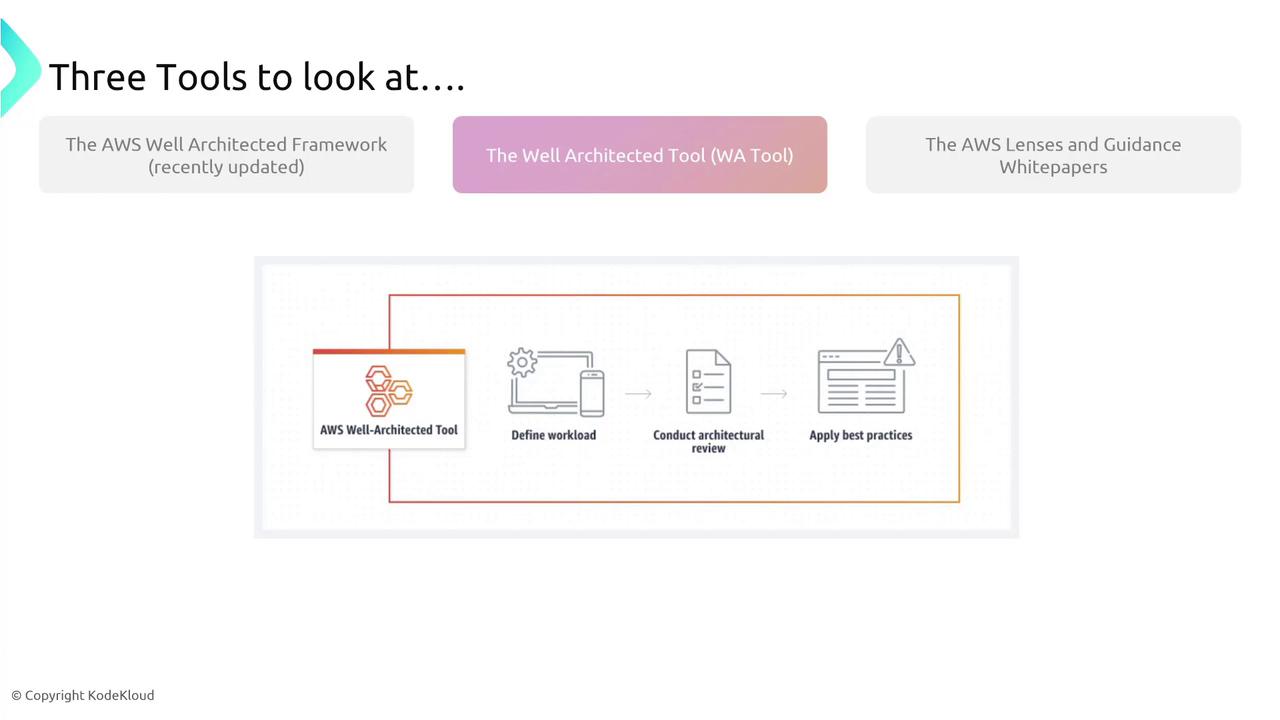
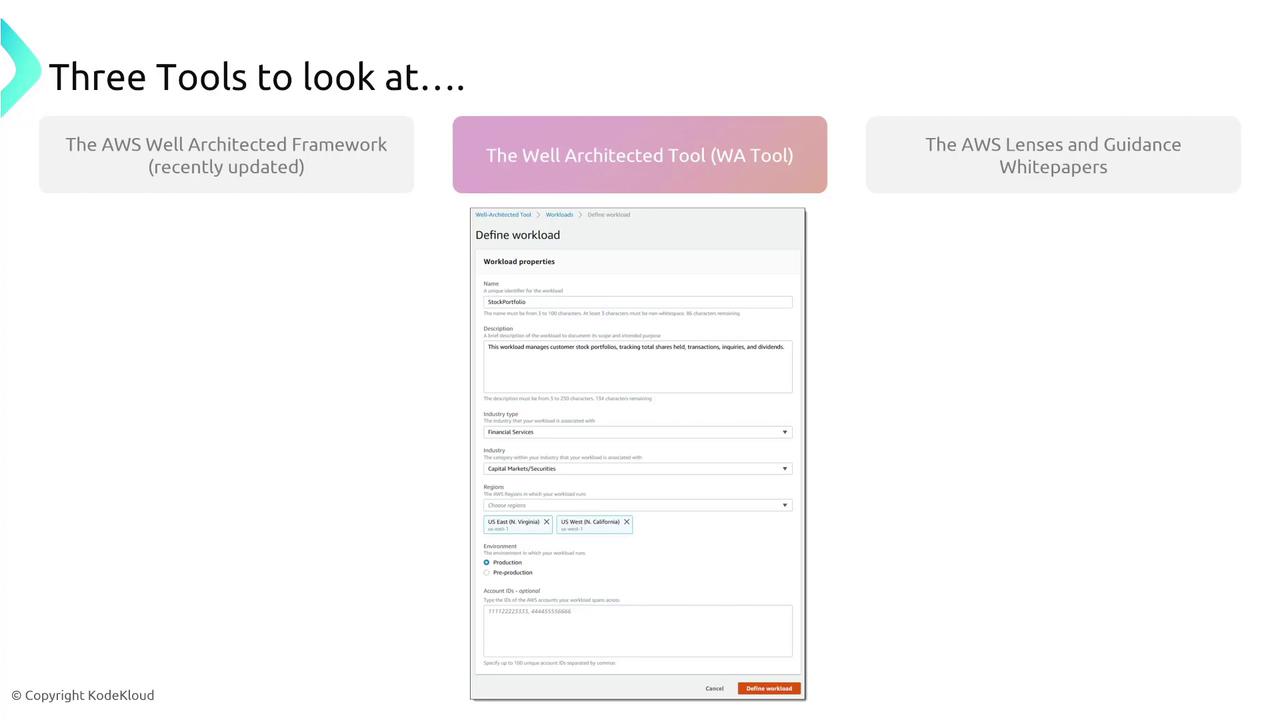
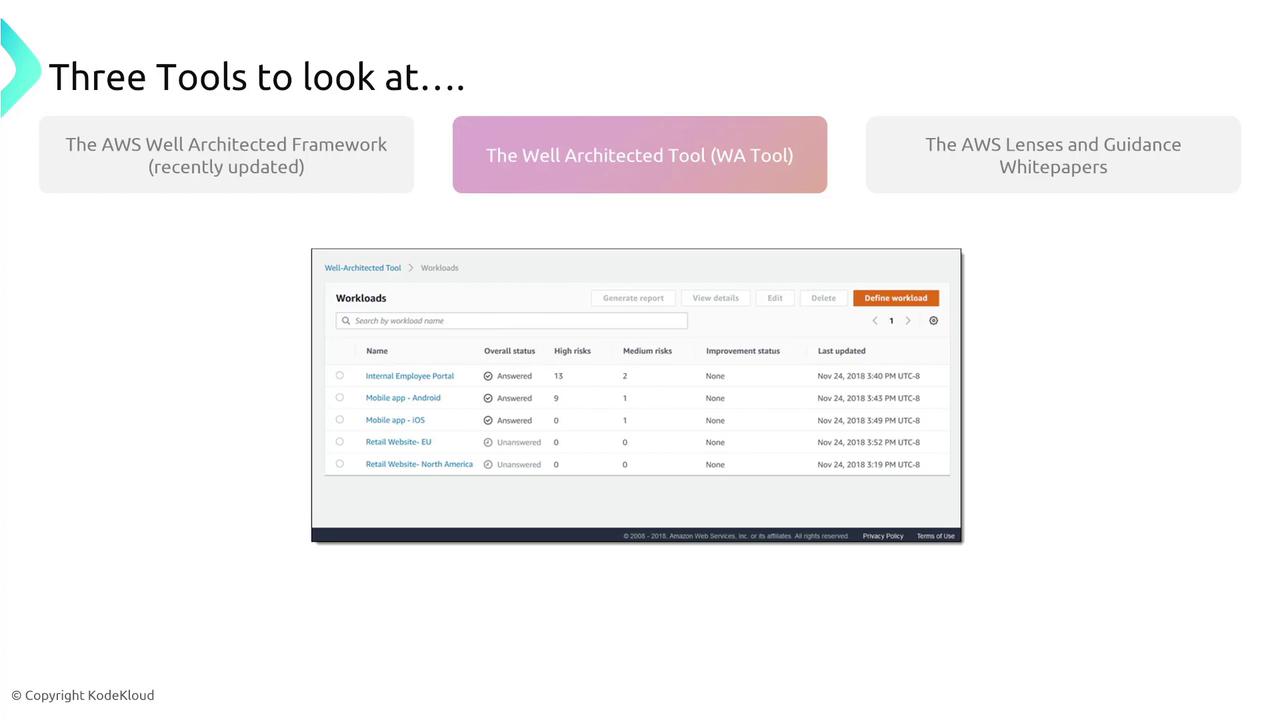
This powerful tool is invaluable for ensuring that your workloads adhere to AWS best practices and remain architecturally sound as your expertise as a solutions architect grows.
AWS Lenses and Guidance Whitepapers
In addition to the framework and tool, AWS offers targeted whitepapers categorized into two main types:
AWS Lenses: These documents are tailored for specific technologies and industries including machine learning, data analytics, serverless computing, and high-performance computing. For example, you might have noticed that the Governance Lens was updated in August while the Machine Learning Lens received updates in July.
AWS Guidance: These whitepapers cover broader architectural concepts and best practices. They address topics such as serverless architecture, operational readiness reviews, and disaster recovery strategies tailored for complex cloud environments.
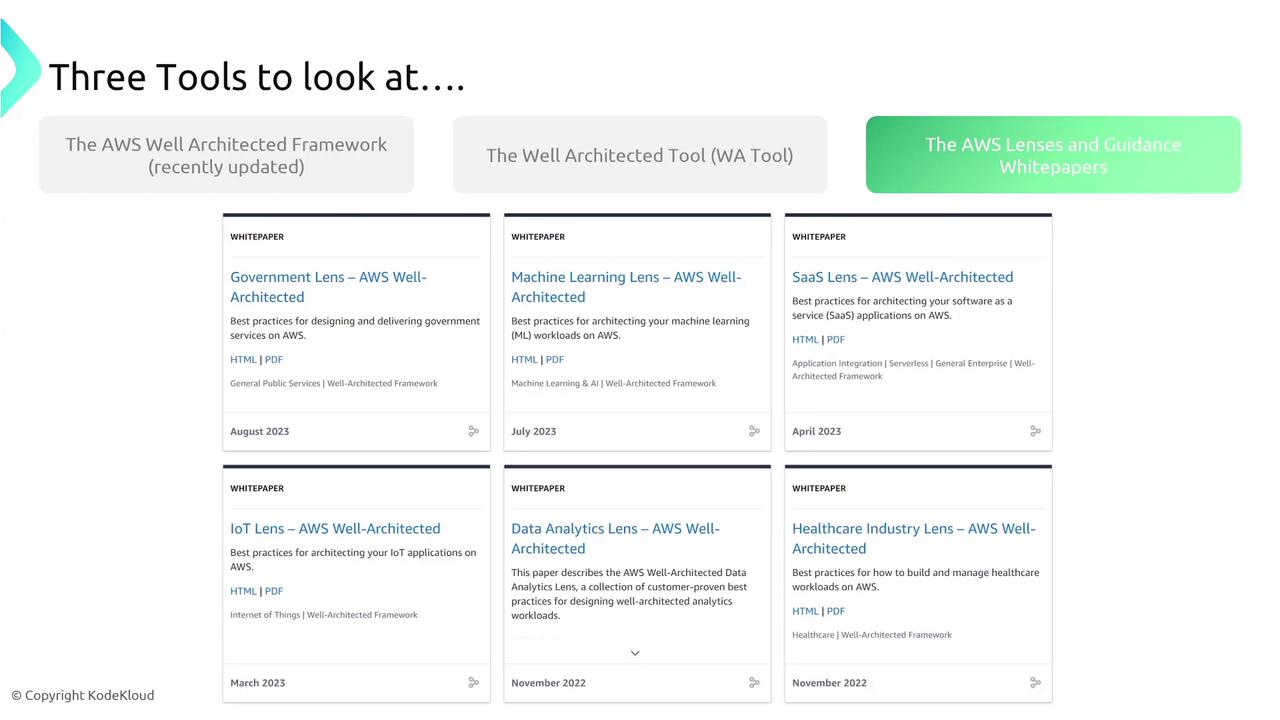
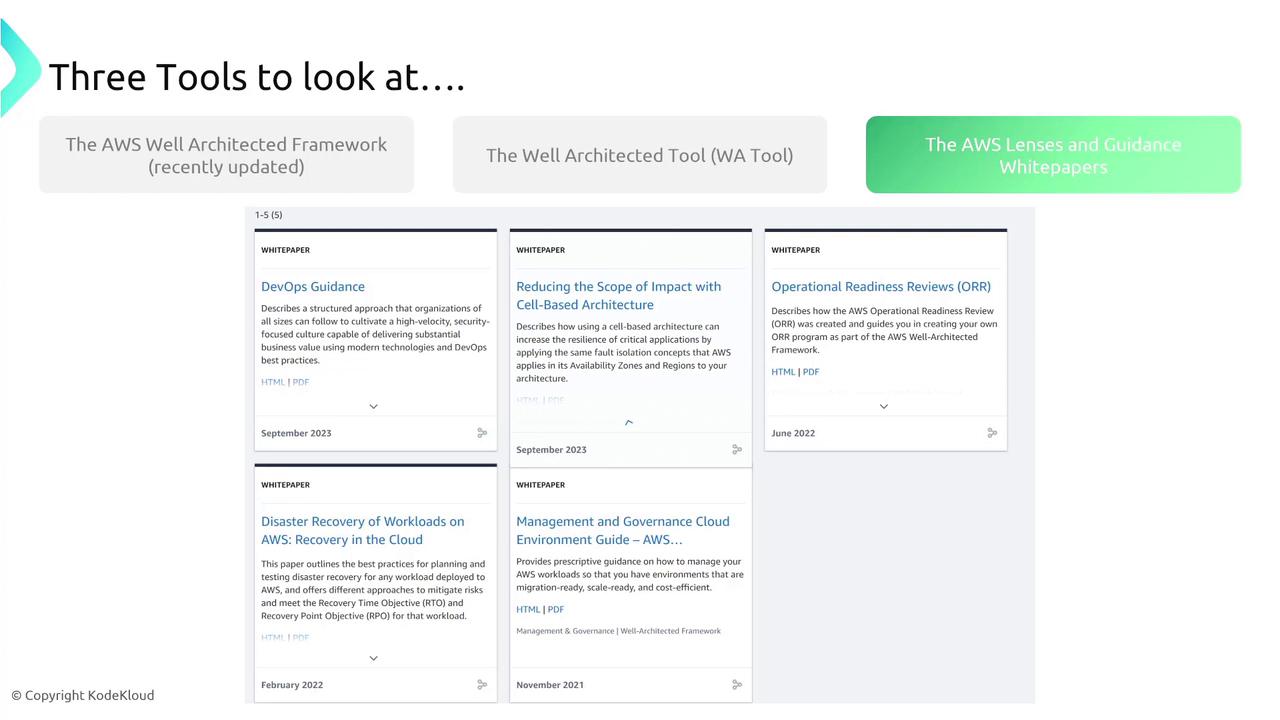
These whitepapers have been popular resources since 2021. They offer valuable insights for both industry-specific challenges and high-level strategic planning, making them essential reading as you continually refine your AWS architectural practices.
Summary
To wrap up, here are the key AWS tools that can reinforce your implementation of the AWS Well-Architected Framework:
- The updated Framework itself, which now incorporates six critical pillars.
- The Well-Architected Tool, an interactive resource to assess and improve your workload architectures.
- Specialized AWS Lenses and AWS Guidance whitepapers that provide focused, in-depth recommendations for various industries and technologies.
Together, these resources empower you to design, maintain, and optimize robust, secure, and efficient cloud architectures on AWS.
I'm Michael Forrester. Thanks for reading this article, and I look forward to connecting with you in the next lesson.
Watch Video
Watch video content